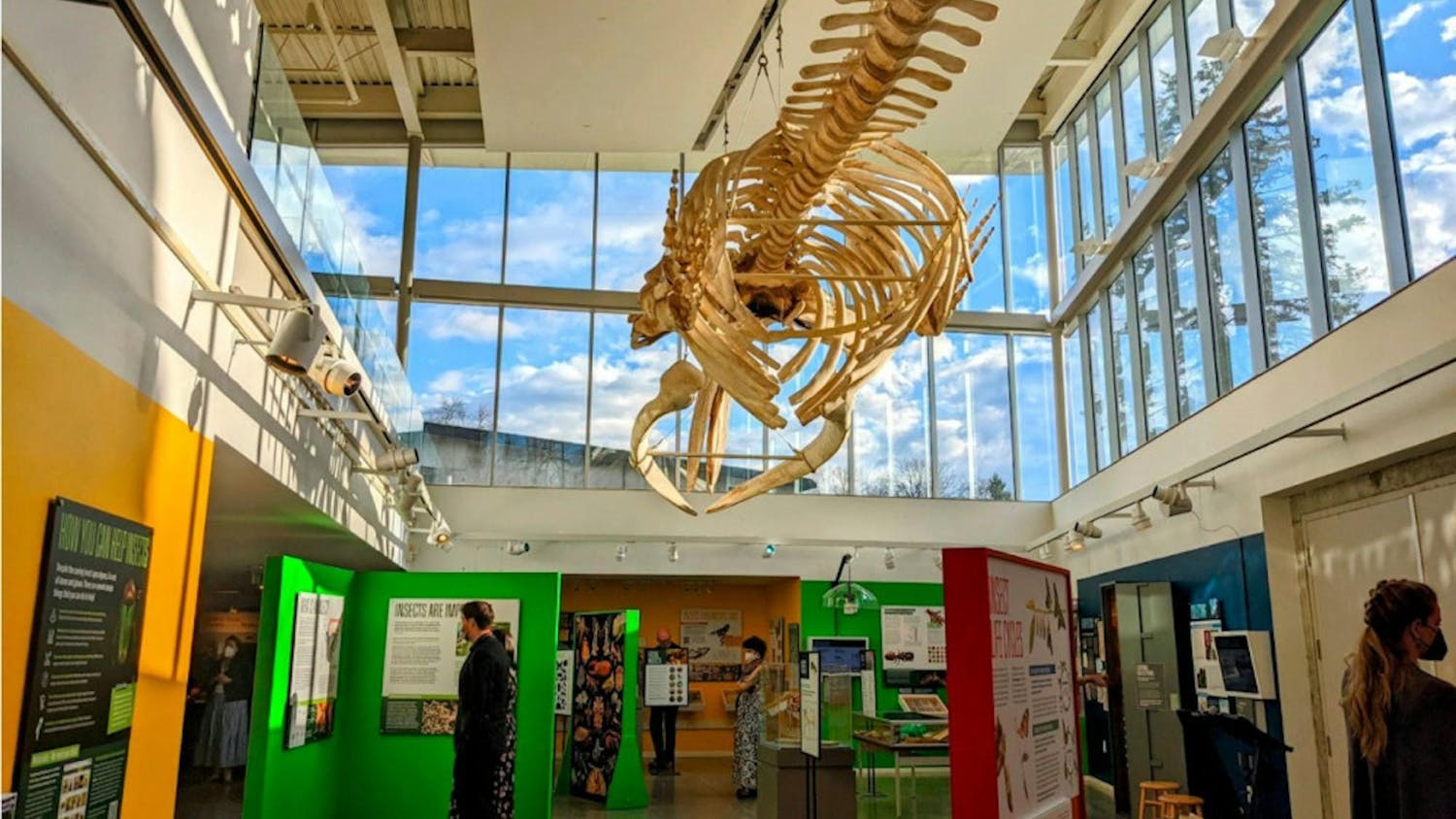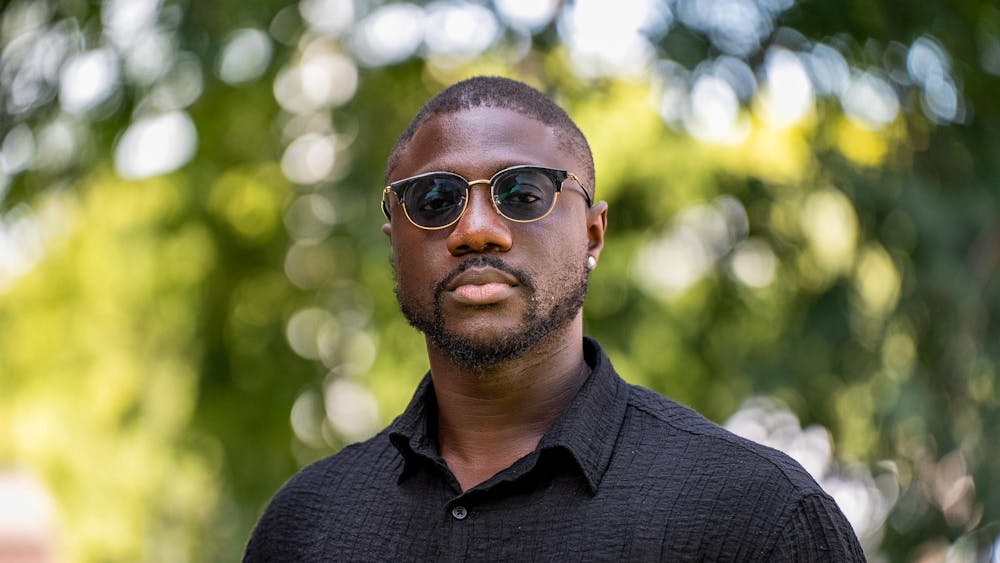The super-majority of the Student Assembly body voted to send Resolution 50: Ensuring Fair Course Access for Student Athletes to President Michael Kotlikoff’s desk after approximately three hours of deliberation during Thursday’s meeting.
The resolution would give freshman and sophomore student-athletes a one-hour window before their respective pre-enrollment slots to select up to eight credit hours worth of courses. Student Assembly members hope that the resolution will help student-athletes tailor their schedules around their course needs and prevent them from missing class time due to athletic obligations. The resolution was passed in a 20-4-6 vote at its third and final reading after being tabled during previous sessions.
According to a draft of the resolution, “student-athletes at Cornell often face additional complications to fulfill academic requirements and meeting standard athletics commitments because of inflexible lecture, discussion, and lab scheduling.”
Furthermore, according to the resolution, student-athletes often leave practices early to make it to classes on time, which causes “gaps in training and team development between teammates, compromising the success of Cornell Athletics programs and varsity teams.”
The resolution was sponsored by Student Assembly President Zora deRham ’27, Vice President of Diversity and Inclusion Christian Flournoy ’27, Caroline Grove ’26 and Maddie Ferreira ’26. Grove and Ferreira are co-presidents of the Student-Athlete Advisory Committee. Grove is a coxswain for men’s heavyweight rowing and Ferreira is a captain of the women’s swim and dive team.
According to a draft of the resolution, “student-athletes at Cornell often face additional complications to fulfill academic requirements and meeting standard athletics commitments because of inflexible lecture, discussion, and lab schedulin
“We were able to attract a real crowd and show that people care a lot about this resolution, no matter where they stand,” deRham said to The Sun. “This has been a topic of conversation I’ve had with the Student-Athlete Advisory Committee since October, so it was a big win for us as a cohort of co-sponsors.”
Ferreira stated that the reason the three proposed this resolution was to bring attention to the needs of “community who consistently gives back to Cornell’s name and legacy.” As an athlete herself, she has faced many challenges making a schedule that fit with her prerequisite requirements and athletic schedule.
Grove seconded this stating that she “garnered support” from “admin[istrators], coaches and fellow students” in hopes that future student-athletes who arrive at Cornell will not “face an issue” that has “plagued” the University.
While the original resolution stated that all athletes could select an unlimited number of credit hours, deRham said that the “contentious debate that lasted three hours” helped them compromise on eight credit hours.
“I’ve never been on Student Assembly for such a long, healthy and on-campus centered debate,” deRham said.

Nearly an hour of public comment preceded the introduction of the resolution, and the line of students to speak went out the door of Willard Straight Hall. Of the 22 community members who came to voice their opinions on the resolution, 20 were student-athletes and athletics staff representing 11 different sports and at least six different colleges at Cornell.
Team members and staff also showed their support by sitting in for the duration of Resolution 50’s debate.
Two students in opposition of the resolution approached the Assembly towards the end of public comment. They said that the process for passing Resolution 50 was “opaque” and did not represent the 92 percent of the student body this resolution impacts, as student-athletes make up approximately eight percent of the undergraduate population. The speakers did not share their names.
“These policies inconvenience and endanger other students,” one of the speakers said. “It sends a dangerous message that some accommodations are more important than others.”
In addition to sharing their support for Resolution 50, student-athletes shared the various roles that athletics have played in their lives at Cornell.
One student athlete read a statement from athletic director Nicki Moore, who was unable to attend the meeting due to travel. She stated that passing the resolution was “not about preferential access,” but about removing “institutional barriers” that are causing student-athletes to “lose valuable time in the classroom” or at practices.
The resolution also compared the new pending policy to those at peer institutions such as Yale, Brown and Columbia. Student-athletes argued that since these schools –– along with Stanford, Duke and the University of Virginia –– all have similar policies, Cornell should follow suit.
Ameera Aftab, minority students liaison at-large, disagreed with the resolution, citing concerns that it would unfairly give priority and privilege to a select group of individuals at the University.
Aftab proposed an amendment to the resolution in which it would be expanded to include a wider range of students with legitimate time constraints –– rather than just student-athletes –– but was shut down.
“I absolutely support student-athletes and recognize the challenges they face balancing academics and athletics. My concern was simply about fairness, ensuring all students have equitable access to limited course spots,” Aftab wrote in a statement to The Sun. “The amendment I added was about finding a middle ground that supports athletes while protecting access for others.”
Additionally, Aftab raised concerns about the implementation and feasibility of Resolution 50.
“While I support the goals of the resolution, I do not anticipate implementation in the immediate future … most system-level changes at the University follow a longer timeline,” she wrote.
The resolution states that student-athletes would be asked “to identify the specific courses they need … to remain on track within their declared major or intended pre-veterinary or pre-medical pathways,” but does not specify how broad those categories may be. Certain undergraduate colleges, like the College of Arts and Sciences, have broad graduation requirements, leaving no distinction between an “elective” and a “required” course.
Nine additional resolutions were passed –– 46, 52, 53, 54, 55, 56, 57, 58 and 59; they are now left for the 2025-2026 Student Assembly to see through.
Towards the end of the meeting, deRham was sworn in for her second term as Assembly president, which is slated to start next semester. She said she is “excited for next year.”
“The end of year rush is interesting and kind of chaotic … and these are great initiatives and detailed resolutions for the next group of assembly members,” deRham said.
Correction, May 4, 11:30 a.m.: A previous version of this article incorrectly identified Vice President of Diversity and Inclusion Christian Flournoy’s ’27 current position on the Assembly. Additionally, the article has been updated to clarify the progression of the resolution.
Correction, May 3, 12:45 p.m.: A previous version of this article incorrectly identified Caroline Grove ’26 as a co-captain of women’s swim and dive. She is actually a coxswain on the men’s heavyweight rowing team. Additionally, the article has been updated to add E.V.P. Christian Flournoy ’27 as a co-sponsor of Resolution 50.
Zeinab Faraj is a member of the class of 2028 in the College of Arts and Sciences. She is the features editor on the 143rd Editorial Board and was the assistant sports editor of the 143rd Editorial Board. You can reach her at zfaraj@cornellsun.com.











